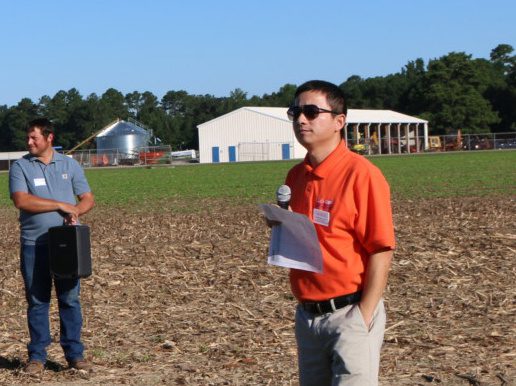Clemson – The CAREER program issues grants to early-career faculty who demonstrate intellectual merit and the potential to create broader impacts beyond the lab. The program represents the foundation’s mission to encourage integration of research and education at universities in the U.S. To be eligible for a CAREER award, an applicant must submit an integrative research proposal representing their professional interests and the needs of their institution.
The CAREER award, which totals $500,000, will make it possible for Clemson soil scientist Rongzhong Ye to extend his research in identifying the links between soil microbial communities and soil functions in agriculture.

“This award means my research idea is running on the right track, which gives me more confidence moving forward,” Ye said. “This could create more opportunities for me to interact with scientists in the same disciplines, exposing me to the research frontier and the cutting-edge techniques that address relevant questions.”
Ye joined Clemson’s Plant and Environmental Sciences department in February 2017. He received his Ph.D. in Soil and Water Sciences from the University of Florida in 2010. He also worked as an Assistant Project Scientist at University of California at Davis before moving to Clemson.
Ye studies soil biogeochemistry to understand physical, chemical, and biological processes that affect microbial communities, soil health, and crop production. Soil nutrient regeneration, carbon sequestration, and water storage are just some of the processes he analyzes. The processes all contribute to sustainable crop production.
“With more and more interests in integrating microbial functions into soil health evaluation, the composition and diversity of microbial communities are weighing more heavily [in research],” he said.
Microbial biomass plays an important role in supporting plant growth through nutrient cycling. Ye is investigating how aboveground biodiversity affects soil microbe chemistry and composition. The goal is to improve soil and help farmers grow more food sustainably.
Ye said his desire to contribute to Clemson’s agricultural scholarship motivated him to submit his proposal for funding.
“Ultimately, the goal is to demonstrate my scholarship, and hence Clemson University’s, that is well-received and appreciated,” he said. “I hope this addition will provide more education or research opportunities in soil and microbial ecology in the department.”
Currently at the Pee Dee station, Ye is assessing ways to use conservative soil management practices, like reduced tillage or cover crops, to increase organic carbon in Coastal Plain soils and to improve their health and resilience. He says this will support sustainable row crop cultivation in the end.
Get in touch and we will connect you with the author or another expert.
Or email us at news@clemson.edu

